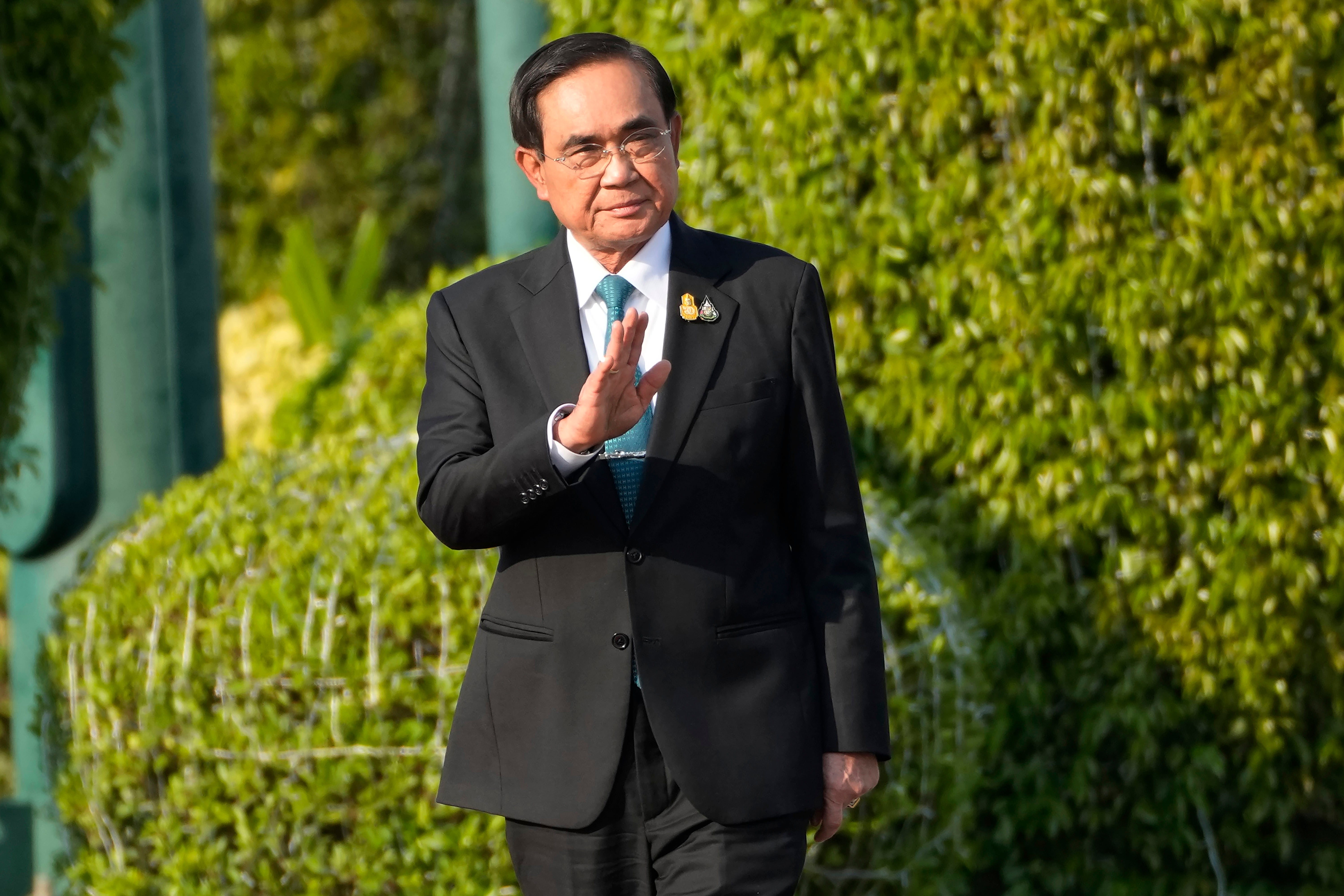Thailand's PM suggests he will dissolve Parliament in March
Thailand’s Prime Minister Prayuth Chan-ocha says he will dissolve Parliament in March, paving the way for a general election to be held in May

Thailand’s Prime Minister Prayuth Chan-ocha said Tuesday that he will dissolve Parliament in March, paving the way for a general election to be held in May.
The government’s four-year term expires on March 23, but in remarks to reporters after a Cabinet meeting, Prayuth suggested he would dissolve the House of Representatives before that. Prayuth also set May 7 as the election date, though details still need to be worked out.
Prayuth has headed a coalition government and is seeking another term. He originally came to power in 2014 when, as army commander, he led a military coup that ousted an elected civilian government. He did not run in the general election in 2019, but was the prime minister candidate of the military-backed Palang Pracharath party, which cobbled together a coalition government.
Palang Pracharath for this year’s election has named Deputy Prime Minister Prawit Wongsuwan — also a retired general — its candidate for prime minister, while Prayuth has joined a new party, the Ruam Thai Sang Chart Party, or United Thai Nation Party, which has named him its candidate.
The opposition Pheu Thai party has been making a strong showing in early polls, and there is no clear front-runner in the race so far.
Under Thailand’s Constitution, prime ministers do not have to be elected lawmakers. A joint session of the lower house and the Senate -- an appointed body generally representing the conservative views of the Thai establishment — selects the prime minister.
Prayuth, under a constitutional provision affirmed last year by the courts, can serve only two more years under an eight-year limit.
Government spokesperson Anucha Burapachaisri said that if the election is held as expected in early May, the Election Commission will ratify the results in early July. The new session of Parliament would then convene and appoint a chair by mid-July and the selection of the new prime minister would be expected around the end of the month.
Dissolving Parliament before the end of the government’s term would allow an official campaign period of 45-60 days.
Bookmark popover
Removed from bookmarks